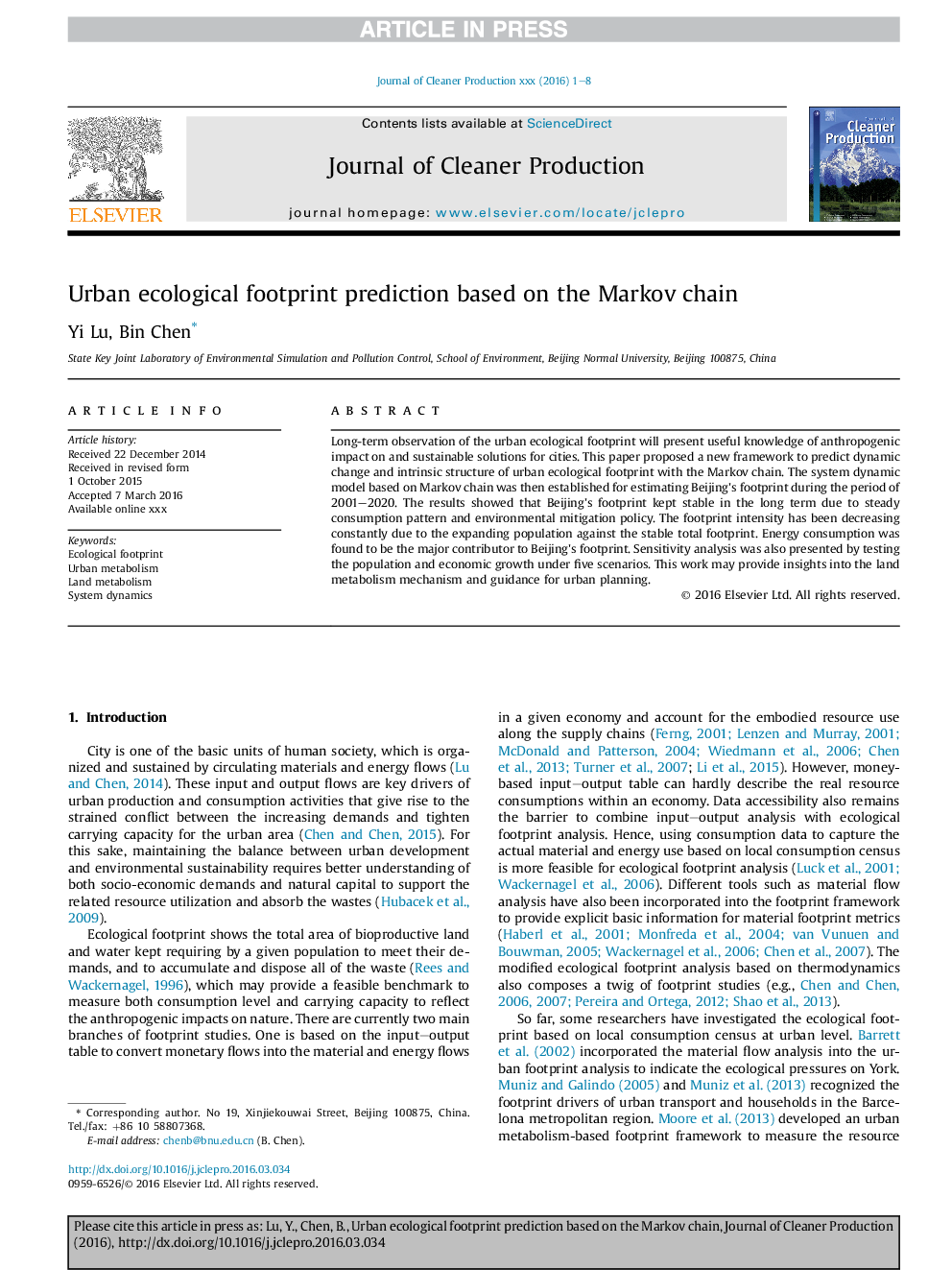| Article ID | Journal | Published Year | Pages | File Type |
|---|---|---|---|---|
| 5479555 | Journal of Cleaner Production | 2017 | 8 Pages |
Abstract
Long-term observation of the urban ecological footprint will present useful knowledge of anthropogenic impact on and sustainable solutions for cities. This paper proposed a new framework to predict dynamic change and intrinsic structure of urban ecological footprint with the Markov chain. The system dynamic model based on Markov chain was then established for estimating Beijing's footprint during the period of 2001-2020. The results showed that Beijing's footprint kept stable in the long term due to steady consumption pattern and environmental mitigation policy. The footprint intensity has been decreasing constantly due to the expanding population against the stable total footprint. Energy consumption was found to be the major contributor to Beijing's footprint. Sensitivity analysis was also presented by testing the population and economic growth under five scenarios. This work may provide insights into the land metabolism mechanism and guidance for urban planning.
Related Topics
Physical Sciences and Engineering
Energy
Renewable Energy, Sustainability and the Environment
Authors
Yi Lu, Bin Chen,
